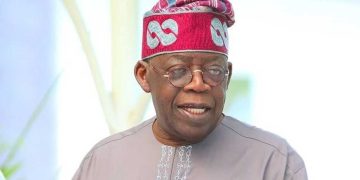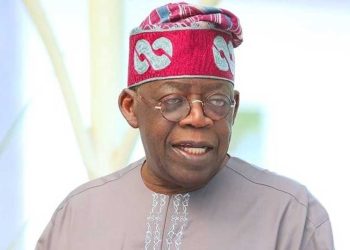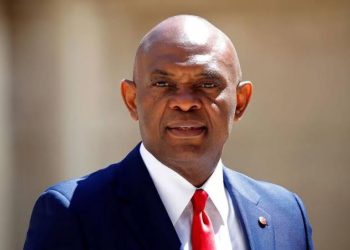The United States Ambassador to Nigeria, Richard Mills Jr, has said that the United States will concentrate on private sector-led investments henceforth.
He recently shared that Nigeria is set to enter a new phase of vibrant private sector-led growth.
Speaking at the Fireside Chat held at the Lagos Business School under the theme “Toward a Robust US-Nigeria Commercial and Investment Partnership.” Richard revealed that after investing billions of dollars in Nigeria’s health, education, and agricultural sectors in recent years, the U.S is currently focused on building on the strength of its aid investments.
According to him, the American government has reached what Trump likes to call an inflexion point, therefore, there is about to be a major shift from aid to trade.
He announced that the United States, from now on, intends to engage African countries, not as aid recipients, but as efficient commercial partners.
Richard stated that as the US Ambassador to Nigeria, he has been tasked with boosting trade, increasing investment, and improving business linkages between Nigeria and America.
“Over the last few decades, the United States has invested billions of dollars in Nigeria’s health, education, and agricultural sectors, I believe, saving lives and also creating new economic opportunities on the ground.
However, we have reached what President (Donald) Trump likes to call an inflexion point. Now is the time for us both to build on the strength of these aid investments, and for Nigeria, one of Africa’s largest economies with huge economic potential, to enter a new phase of vibrant private sector-led growth. Our approach, I want to be clear, I think, is three.
We are making a shift from aid to trade. We want to engage African nations not as aid recipients, but as capable commercial partners. For us, as our chief of African Affairs, Ambassador Latrell, said, going forward, we will continue to invest in development, but we will do so through expanding trade and private investment, because it is the private sector, not assistance, ultimately, that drives the final stage of economic growth.
By promoting two-way trade and investment, we believe we can drive mutual growth for both our nations. So, as the US Ambassador to Nigeria, I’ve been given a key priority for my mandate to increase trade, increase investment, and increase business linkages between our two countries,” he said.
He concluded by saying that the US Department of Commerce is collaborating with Nigeria’s Ministry of Industry, Trade and Investment to aid the seamless shift from aid to trade.
“The CIP is a five-year memorandum of understanding in which we prioritise with the Nigerian government three key pillars: agriculture, the digital economy, and infrastructure. I should point out that Nigeria is only one of five African nations with which the US has signed the CIP agreement. We are officially launching the partnership discussions later this month,” he added.

Folami David is a dynamic journalist who views the world through an analytical lens, translating complex narratives across multiple industries into compelling stories. With an insatiable appetite for information and a keen eye for emerging trends, Folami specializes in uncovering the interconnections between technology, business, culture, and society.
















